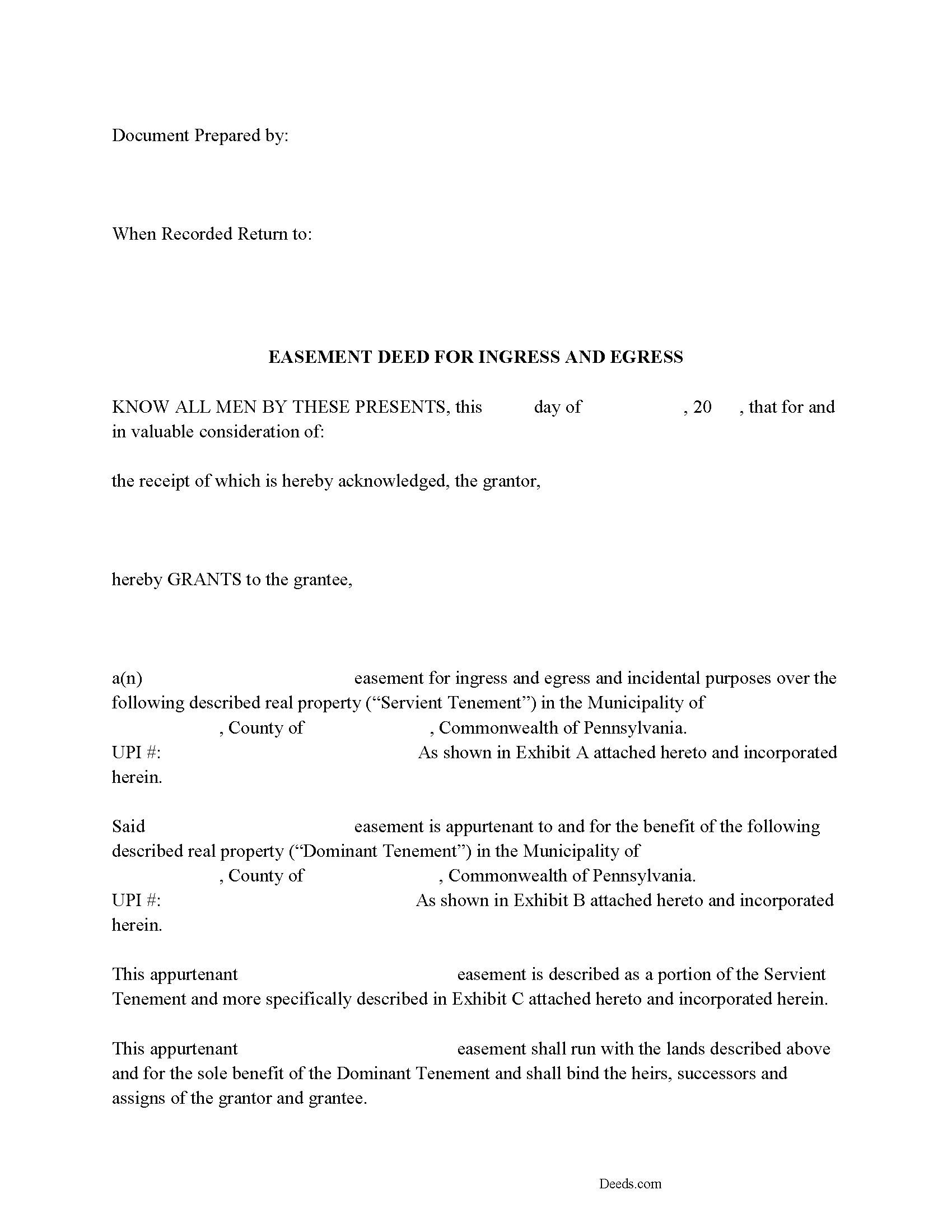Download Pennsylvania Easement Deed Legal Forms

Pennsylvania Easement Deed Overview

An easement is defined as a non-possessory right to use another's land for a specific and precise purpose that is not inconsistent with the other's simultaneous right to use the same property. Often, an easement is contained in the body of a deed providing for the outright conveyance of a parcel of real estate. A Pennsylvania easement can also be created by a written and signed agreement or by a deed of easement. The easement deed should specify the terms and duration of the easement.
The Pennsylvania Statute of Frauds requires that any transfer of an interest in real estate, including a grant of easement, be in writing and duly signed in order to be binding (33 P.S. 1). Before an easement deed can be recorded it must be acknowledged by the grantor. Acknowledgments in Pennsylvania may be made before a before a judge of a court of record, a clerk or deputy clerk of a court having seal, a recorder of deeds, a notary public, or a justice of the peace (21 P.S. 291.2). An easement deed acknowledged out-of-state will be valid to record in Pennsylvania if it complies with the laws of such place where acknowledgments were taken (21 P.S. 41). A certificate of acknowledgment by an officer under seal must be included with a duly acknowledged easement deed, whether the deed has been acknowledged in this state or in another state (21 P.S. 46).
The legal effect of recording an easement deed is to give constructive notice to subsequent purchasers, mortgagees, and/or judgment creditors of the parties to said agreement (21 P.S. 357). An easement deed that has been duly acknowledged or proved should be recorded in the county where the property subject to the easement is located.
(Pennsylvania ED Package includes form, guidelines, and completed example)